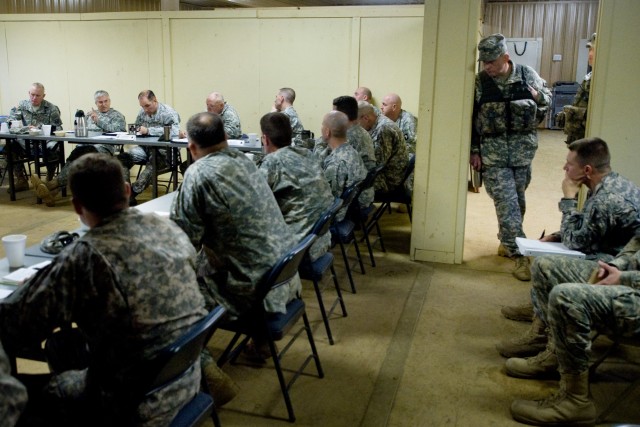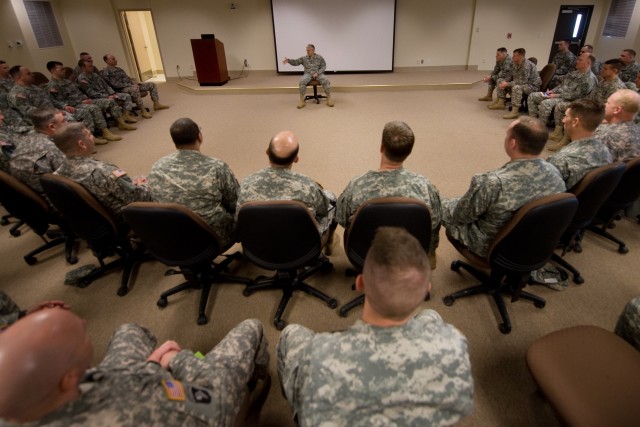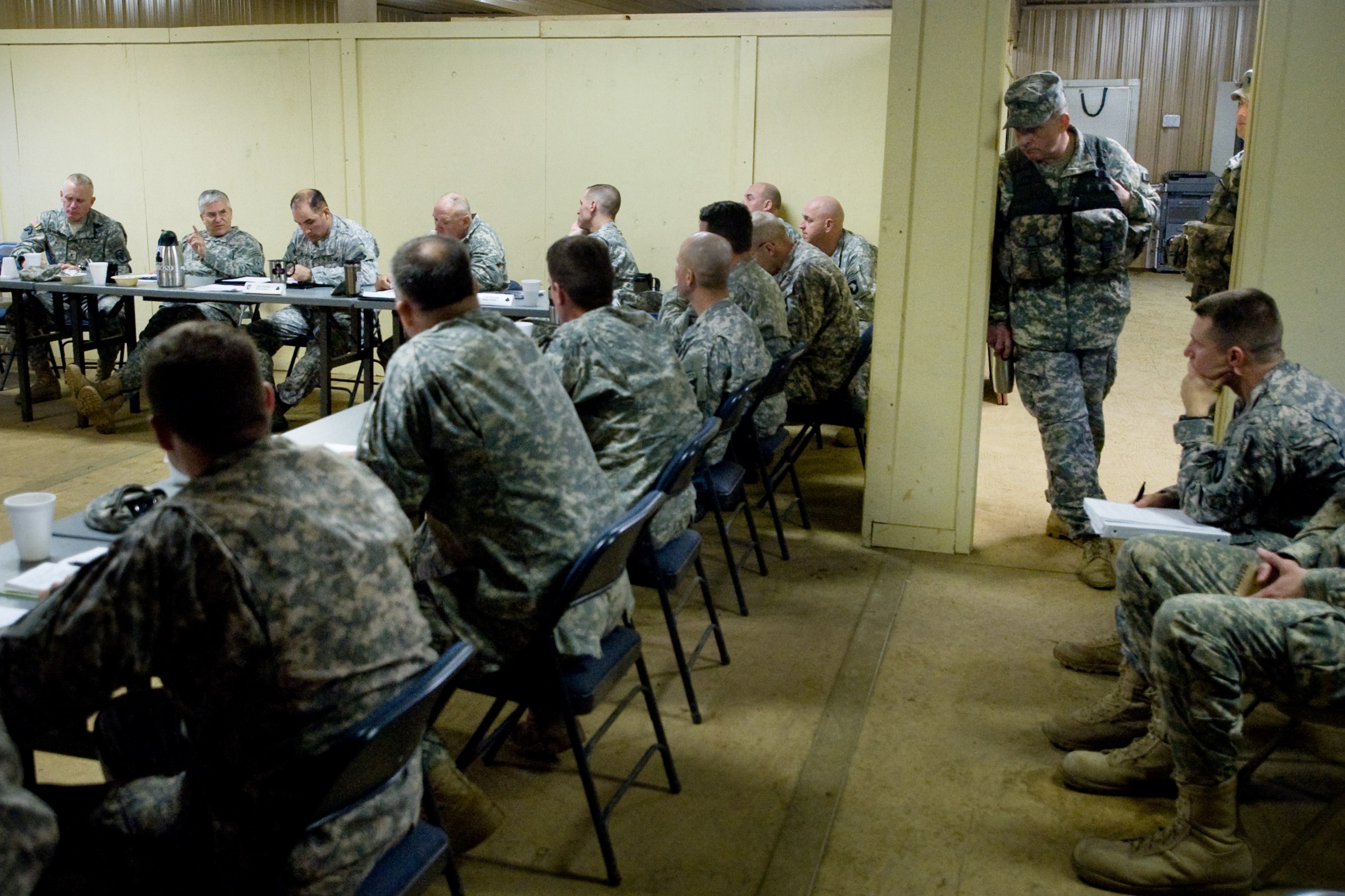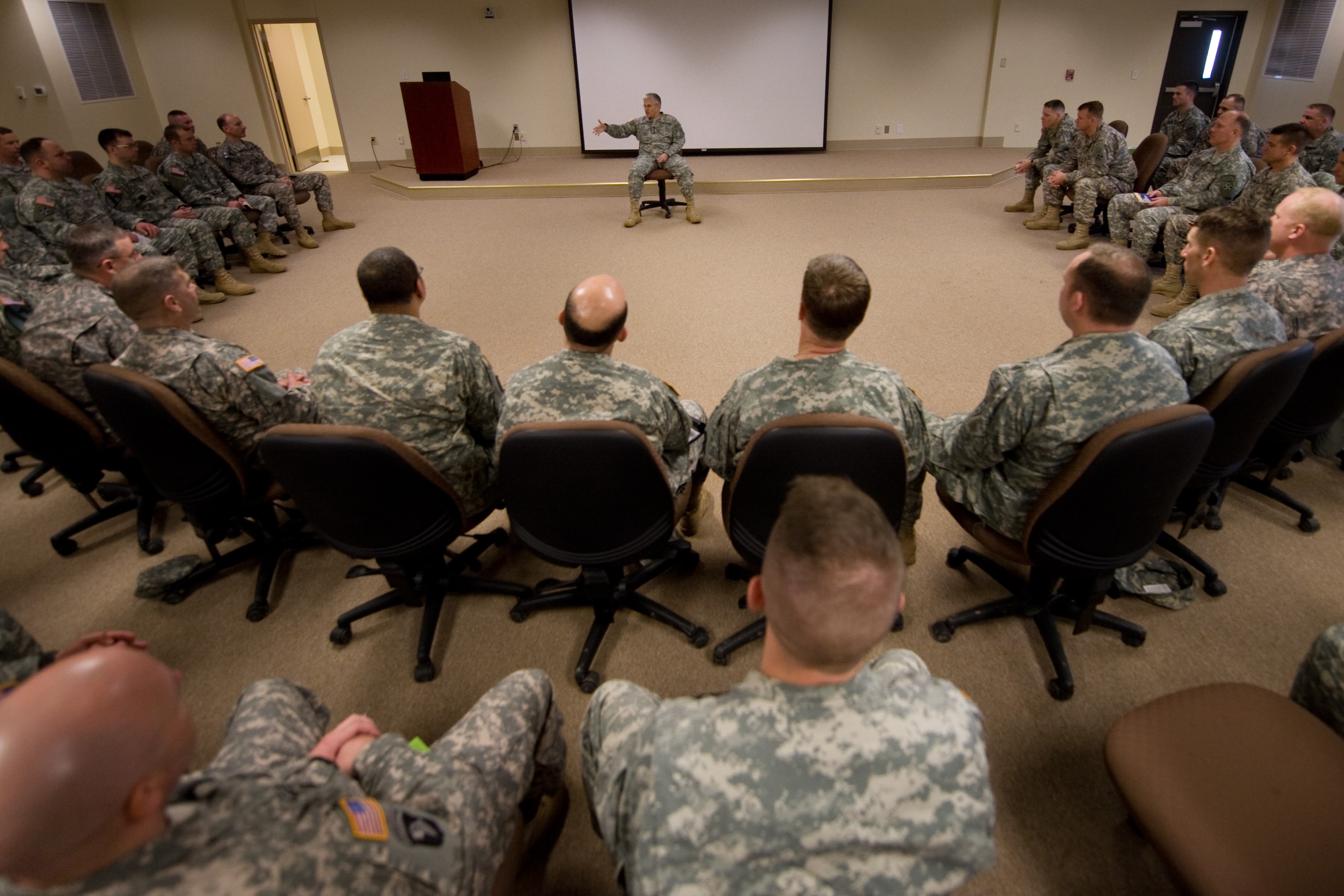FORT POLK, La. (Feb. 2, 2010) -- Army Chief of Staff Gen. George W. Casey Jr. visited the newly organized 162nd Infantry Brigade, responsible for training combat advisors for Iraq and Afghanistan, during his trip to the Joint Readiness Training Center, Jan. 29.
Casey also visited a National Guard battalion headed to Afghanistan and talked to leadership of the 1st Brigade Combat Team, 101st Airborne Division, which was completing its rotation at JRTC. He sat down with JRTC trainer/mentors and received an update on trends they are seeing in rotational units.
"As always, I'm impressed with the caliber of training that's going on here," Casey said. "These training centers drive our Army. The quality of the folks running our training centers is heartening to me as we continue to prepare Soldiers for Iraq and Afghanistan."
When Casey last came to Fort Polk in April, the 162nd footprint on North Fort was only a collection of concrete pads and incomplete infrastructure.
"To see how this brigade has come together and formed and is already making a difference was heartening to me today," Casey said.
"I met with a group of leaders who are going to be combat advisors and I told them the same thing I have been telling transition teams since 2005: They are critically important to our success in both Iraq and Afghanistan, because we don't succeed in either place until the local security forces can maintain domestic order and keep terrorists out of their countries."
Combat advisors will live with their Afghan and Iraq counterparts, often in austere conditions on remote bases a distance away from U.S. or coalition support.
Casey also mentioned the joint nature of the Tiger Brigade's mission. "This brigade is not just training Army advisors," he said. "In fact, they're actually training more Air Force and Navy personnel on their way to Iraq and Afghanistan than Army teams."
Casey was joined by his wife Sheila, who visited with family members and judged a culinary competition. They were welcomed by Brig. Gen. James Yarbrough, commander, JRTC and Fort Polk.
Engaging the press prior to his departure from the Alexandria International Airport, Casey commented on his observations, particularly from his visit with the 1st Brigade, 101st Airborne Division.
"I saw what we can do when we have units home for more than a year," he said. "We are just now, with growth of the Army and the drawdown in Iraq, able to have units home for 18-24 months. From the feedback I heard, this unit came to JRTC highly trained. This is something that will only get better over the next year as we draw down from almost 100,000 Soldiers in Iraq today to less than 50,000 by August."
Casey also explained the impact of the decision to increase forces in Afghanistan: "With the growth of the Army since 2007 we are also able to execute our portion of the Afghanistan plus-up, which is a little more than 20,000 Soldiers, without increasing the length of deployments, going back to Stop-Loss or not meeting our goals for dwell time," he said.
During the press conference Casey was also asked about Army commitments to the humanitarian assistance effort in Haiti.
Recovery efforts in Haiti following the Jan. 12 earthquake are still far from over, and the Army is working with other agencies to bring normalcy to the country, Casey said.
"We have about 3,600 Soldiers there. Their job is a mix of providing a secure environment and humanitarian assistance," he said. "It is interesting to see how the Soldiers have adapted things we learned from Iraq and Afghanistan to Haiti. They take a group of doctors out to villages when they distribute supplies and provide medical care from the back of the truck."
Casey said he doesn't expect any more Fort Polk units to deploy to Haiti. Already there are the 209th Military Police Company, 519th Millitary Police Battalion, and 1st Maneuver Enhancement Brigade.




Social Sharing